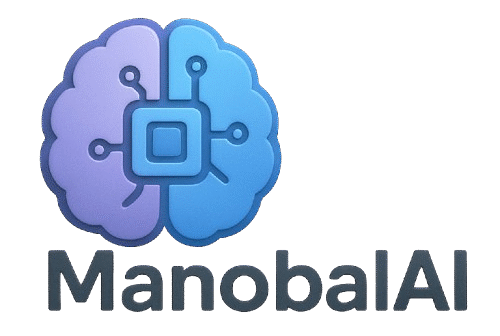Intorduction
In a world driven by artificial intelligence and digital innovation, tools like Napkin AI are changing how we think, learn, and teach. If you’re a student trying to stay on top of your studies or a teacher striving to create more engaging lessons, Napkin AI can be a game-changer.
In this comprehensive guide, we’ll explore what Napkin AI is, how students and teachers can use it effectively, and why it’s becoming one of the top tools in education in 2025

What Is Napkin AI?
Napkin AI is an intelligent note-taking and idea management tool designed to help users capture thoughts, organize ideas, and build knowledge over time. Think of it as your digital brain — but smarter.
Unlike basic note-taking apps, Napkin AI uses artificial intelligence to connect your thoughts, suggest related ideas, and present them visually. For students and teachers, this means:
- Faster brainstorming
- Better organization
- Deeper understanding
Benefits of Napkin AI for Students
1. Smart Note-Taking Made Easy
Napkin AI allows students to jot down quick notes during lectures, classes, or study sessions. The real magic? The AI helps organize those notes automatically.
For example:
- If you note down “Photosynthesis,” Napkin AI might suggest related concepts like “Chlorophyll,” “Light Reaction,” or “Carbon Cycle.”
2. Helps with Essay Writing and Research
Students can build idea webs, create structured outlines, and explore topic clusters. It’s like having a brainstorming buddy 24/7.
3. Better Memory Retention
Napkin AI’s visual note-mapping system helps you see how ideas connect. Visual learning is proven to boost memory and recall.
4. Keeps You Organized Across Subjects
Instead of juggling separate notebooks or files for each subject, Napkin AI helps you manage everything in one place — neatly categorized.
5. Collaboration Features
Group project? Share your idea map with classmates. Work together to build a research roadmap, assign tasks, or gather resources.
Benefits of Napkin AI for Teachers
1. Effective Lesson Planning
Teachers can use Napkin AI to build lesson frameworks by connecting related topics and subtopics visually. For example, a history teacher could map out the World Wars, including causes, key events, and aftermath — all in a visual format.
2. Creative Teaching Materials
Generate new ideas, examples, and teaching angles using Napkin AI’s smart suggestions. AI helps you break monotony and keep lessons fresh.
3. Support Student Projects
Teachers can guide students through project planning by co-building mind maps or reviewing their Napkin boards.
4. Professional Development
Use Napkin AI for your own research, course planning, or even preparing workshops and seminars.
How to Use Napkin AI in Education
Here’s how students and teachers can get started with Napkin AI:
Step 1: Capture Your Ideas
Write a quick thought or a keyword (e.g., “climate change” or “Shakespearean tragedies”).
Step 2: Let AI Suggest Connections
Napkin AI will automatically suggest related topics, links, or prior notes. This is where the real thinking begins!
Step 3: Organize Your Thought Web
Drag-and-drop your ideas into logical clusters. Use the visual canvas to make sense of your content.
Step 4: Share or Export
Export your idea web as a PDF or share it with classmates or colleagues.
Real-World Use Cases
Example 1: High School Student Preparing for Exams
- Create separate clusters for Physics, Chemistry, and Math
- Use AI prompts to dive deeper into complex topics
- Create revision-ready visuals before tests
Example 2: English Literature Teacher
- Create a visual breakdown of a novel (e.g., Macbeth)
- Link characters, plot events, themes, and literary devices
- Use as a teaching aid in class
Why Napkin AI Stands Out from Other Tools
| Feature | Napkin AI | Traditional Notes | Mind Mapping Apps |
|---|---|---|---|
| AI Suggestions | Yes | No | Limited |
| Visual Mapping | Yes | No | Yes |
| Cross-Linking Ideas | Yes | No | No |
| Easy Sharing | Yes | Yes | Yes |
| Smart Organization | Yes | Manual | Manual |
Is Napkin AI Safe for Students?
Yes, Napkin AI prioritizes user privacy. Notes and data are securely stored, and students can control what they share and with whom.
People Also Ask
What is Napkin AI used for?
Napkin AI is used for smart note-taking, brainstorming, organizing thoughts, and visualizing ideas. It’s great for students, teachers, writers, and creators.
Can students use Napkin AI for free?
Napkin AI may offer a free plan with limited features. However, many educational institutions are adopting AI tools like this and may provide access through school accounts.
Is Napkin AI good for study planning?
Absolutely. It helps break down complex topics and plan study sessions more effectively.
Can teachers use Napkin AI for lesson planning?
Yes, it’s a powerful tool for mapping out lesson topics, building teaching strategies, and supporting student engagement.
What subjects can benefit most from Napkin AI?
History, science, literature, and even math — basically any subject that involves critical thinking, connections, or idea exploration.
Is Napkin AI better than Notion or OneNote?
They’re different. Notion and OneNote are general productivity tools. Napkin AI is more focused on visual thinking, brainstorming, and connecting ideas.
Tips for Getting the Most Out of Napkin AI
- Use it daily: Make it part of your school routine.
- Don’t overthink: Write your raw ideas — AI will help you polish them later.
- Use tags and labels: Makes finding topics easier.
- Sync with other tools: If possible, connect Napkin with your calendar or study planner.
- Collaborate: Invite classmates or coworkers to your idea maps for group projects.
Conclusion: Smarter Learning Starts Now
In 2025, learning and teaching are evolving — and tools like Napkin AI are leading that change. Whether you’re a student trying to understand a difficult topic or a teacher building your next big lesson, Napkin AI helps you think better, faster, and more clearly.

